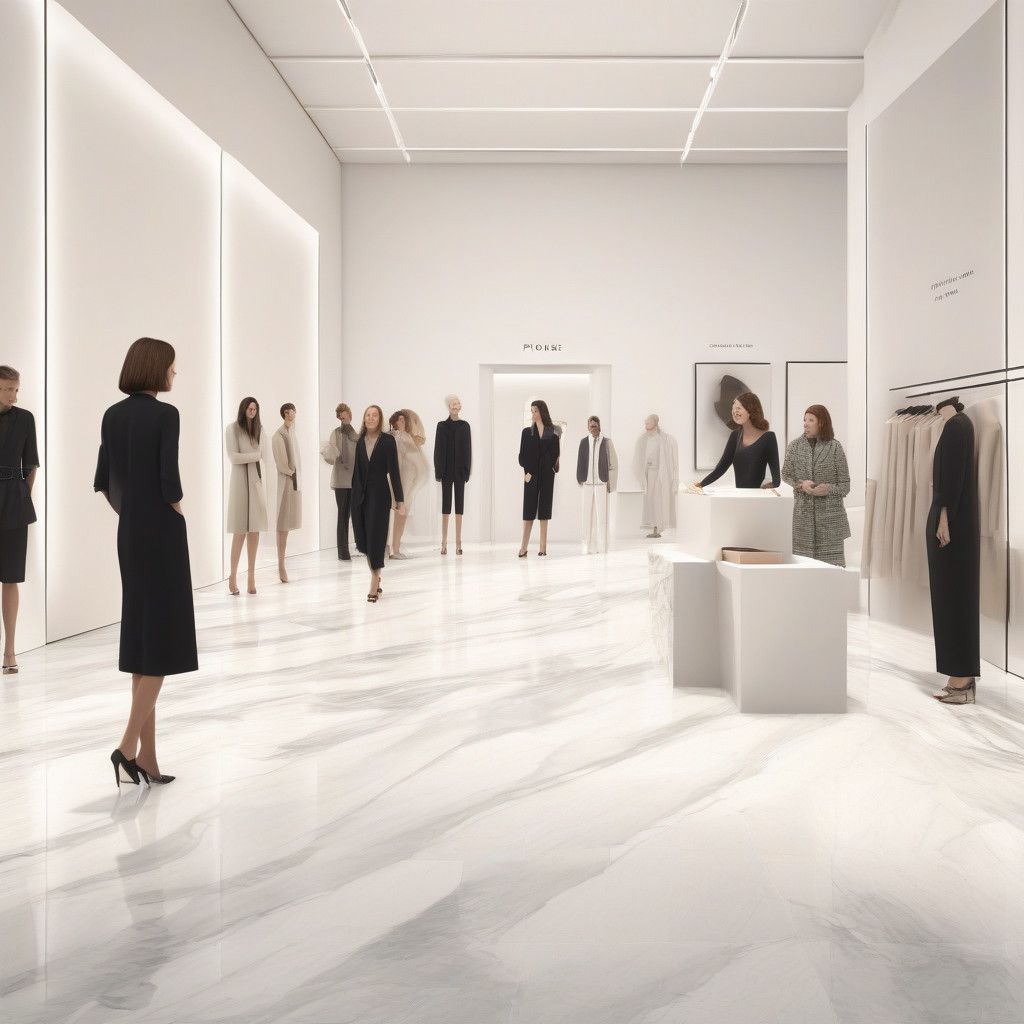Phoebe Philo’s eponymous label, backed by luxury powerhouse LVMH, is making a strategic pivot by integrating brick-and-mortar wholesale distribution into its business model. This shift towards physical retail will complement its initial strategy of launching as an online-only, direct-to-consumer brand. The decision not only offers new avenues for revenue generation but also enables the brand to build a more multifaceted relationship with its customers.
Philo is set to introduce her third collection, which she refers to as “seasonless edits,” on September 10, 2024. This collection will be available for purchase online before it makes its way into various prestigious concept stores and luxury department stores. Notable retail partners include 10 Corso Como in Milan, Bergdorf Goodman in New York, Dover Street Market in London and Paris, along with Neiman Marcus, Maxfield in Los Angeles, and The Webster in South Beach, Miami.
The move to wholesale comes less than a year after Philo’s initial launch, which placed a heavy emphasis on digital drops with limited item quantities. This scarcity-driven model aimed to enhance brand exclusivity and encourage full-price sales while ensuring that offerings resonated with a discerning clientele. However, as consumer demand fluctuated after a successful debut, doubts arose regarding the sustainability and scalability of a purely digital approach.
The luxury online marketplace, particularly for emerging brands, has faced significant challenges in recent times. The scrapped merger between Farfetch and Yoox Net-a-Porter, alongside the closure of Matchesfashion, highlights the difficulties in maintaining profitability in an online-driven landscape. As a result, Philo’s decision reflects a broader trend within the luxury sector to diversify distribution methods, especially as consumer behaviors evolve and call for more in-person shopping experiences.
Return to Retail: Understanding the Shift
Philo’s transition to include wholesale accounts is not only about expanding distribution; it symbolizes a strategic repositioning within the shifting landscape of luxury retail. Many luxury brands have similarly been navigating this transition, as high-end consumers increasingly seek tactile experiences and personalized shopping. It’s not merely about purchasing clothing but creating an emotional connection between consumers and brands.
For instance, brands like Gucci have successfully embraced the concept of exclusivity through both online channels and physical stores, showcasing limited-edition items alongside accessible collections. This mixed distribution strategy allows them to retain a luxurious image while catering to a diverse consumer base. Philo’s label, with its emphasis on thoughtful design and quality craftsmanship, stands to gain significantly by adopting a similar strategy.
Furthermore, luxury department stores and concept shops serve more than just transactional functions; they offer curated experiences that resonate with consumers looking for assurance in their purchases. Engaging with knowledgeable staff and seeing products firsthand fosters trust, an essential element in the luxury sector. By collaborating with notable retailers, Philo is poised to leverage this trust while enhancing brand visibility.
Ensuring Scalability: What Lies Ahead
As Phoebe Philo moves forward with her collection launches and expanded distribution strategy, it remains crucial for her brand to monitor consumer feedback closely. The fashion industry exhibits rapid changes; thus, being responsive to customer preferences and market trends will be key to ensuring enduring success.
Moreover, it will be essential to align the physical retail experience with the online shopping journey to provide a seamless integration of both environments. Successful brands often invest in omni-channel approaches, allowing customers to navigate between online platforms and physical stores fluidly. This strategy not only enhances customer satisfaction but also significantly impacts sales performance as consumers increasingly expect such convenience.
In conclusion, Phoebe Philo’s decision to add brick-and-mortar wholesale accounts marks a significant pivot for a brand that has quickly garnered attention since its inception. As the fashion landscape grows increasingly complex, the firms that can effectively adapt to consumer demands and preferences stand the best chance of thriving. Philo’s new direction illustrates a commitment to balancing exclusivity with accessibility while fostering deeper connections with customers in the luxurious realm of high fashion.












